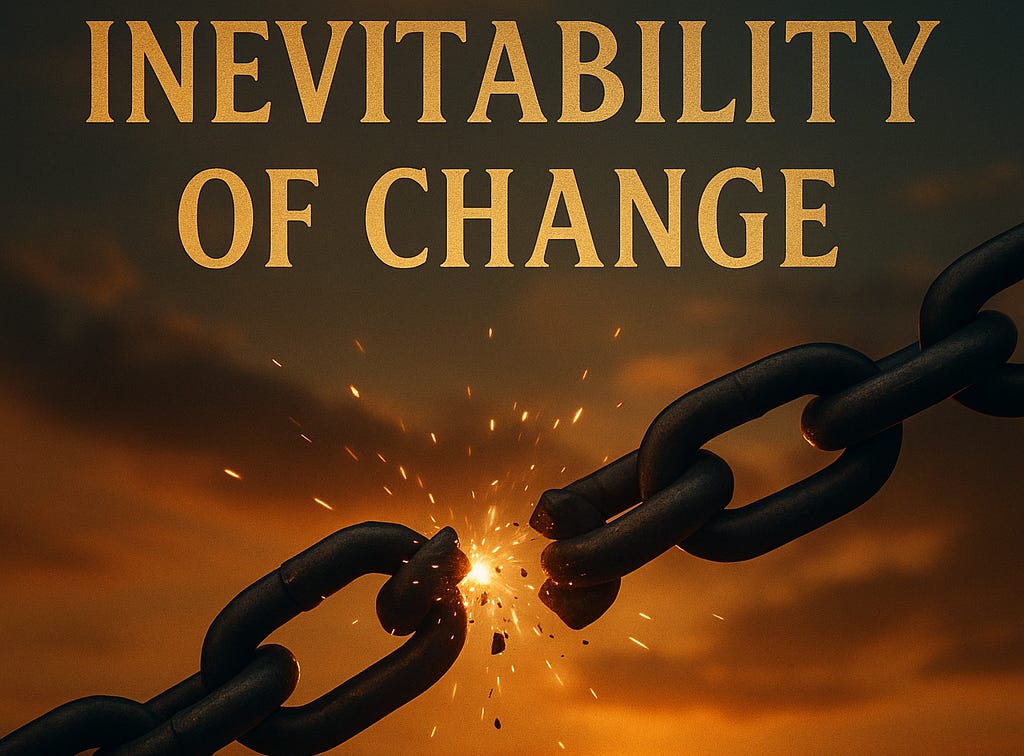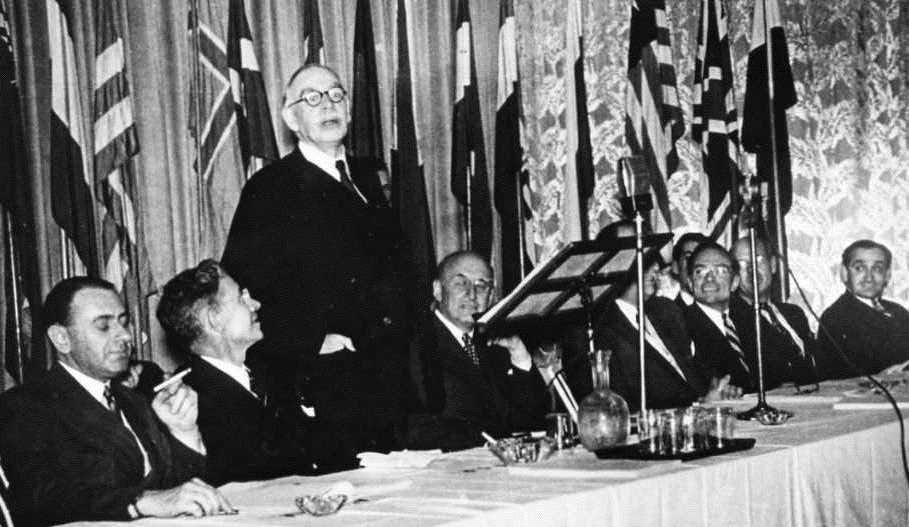The world before BRICS was an unbalanced and a rigged game. By the dawn of the 21st century, the global geopolitical structure, dominated by Western-led institutions like the IMF, World Bank, G7, EU, NATO, and the nascent World Economic Forum, had become a labyrinth of exclusion, exploitation, and broken promises. Developing nations, particularly in the Global South, found themselves ensnared in a system that preached prosperity but delivered debt, sanctions, and sovereignty erosion. The formation of BRICS in 2009 was no accident.
A rebellion against a world order that had plundered nations, stifled agency, and ignored the cries for reform. This study unearths the fractures in the pre-2009 global system, amplified by the voices of leaders who saw the cracks, and traces the desperation of countries crippled by Western financial and geopolitical machinations. Through their lens, we see why BRICS became inevitable.
The Global South’s Grievance: A System Stacked Against
The post-World War II order, built on the Bretton Woods institutions, promised stability and growth. Yet, by the 1990s, it was clear that the IMF and World Bank were less saviors than gatekeepers. Their loans came with strings-structural adjustment programs (SAPs) that demanded privatization, deregulation, and austerity. These policies gutted public services and local economies, particularly in Africa and Latin America.
Zambia, for instance, saw its copper industry privatized under IMF pressure in the 1990s, leading to job losses and a surge in poverty; by 2000, 80% of its population lived below the poverty line. Argentina’s 2001 economic collapse, triggered by IMF-mandated fiscal tightening, left half its citizens destitute, with unemployment soaring to 25%. These were not anomalies but symptoms of a predatory system.
Sanctions, wielded by Western powers through the UN Security Council or unilaterally, further choked nations daring to defy the hegemon. Iraq, under UN sanctions from 1990 to 2003, saw its GDP plummet by 75%, with child mortality doubling due to shortages of medicine and food. Iran, targeted by U.S. sanctions since 1979, faced economic isolation that stifled its oil exports, slashing government revenues by 30% by the early 2000s. These measures, often justified as “security” tools, were blunt instruments of economic warfare, punishing entire populations for the sins of their leaders.
Sanctions’ grip tightened through the Society for Worldwide Interbank Financial Telecommunication (SWIFT), a Belgian-based system controlling the arteries of global finance. By the 1990s, SWIFT processed over 70% of international bank transfers, making it indispensable for trade and payments. Western powers, leveraging their influence over SWIFT’s governance, could sever nations from this network, effectively exiling them from global commerce. Iran, for instance, faced SWIFT disconnection in 1995 and again in later years, paralyzing its ability to process oil payments and slashing trade capacity by 40%. Such exclusion, cloaked as a technical measure, was a financial guillotine, amplifying sanctions’ pain while exposing the Global South’s vulnerability to a system they neither owned nor controlled.
The then G8 (currently the G7), pictured above at a Summit, held at the Gleneagles Hotel in Auchterarder, Scotland in 2005 consisted of Canada, France, Germany, Italy, Japan, Russia, the United Kingdom, and the United States.
Russia left the G8 in 2014 and like all things there’s two sides to the narrative in that event, and here we are in 2025 with BRICS a body of 54 countries, over 5 billion people and PUTIN is the only person in the photograph that’s relevant.
The G8, a clique of wealthy nations, set the global economic agenda, sidelining the Global South. The EU, while preaching integration, often acted as a fortress, imposing trade barriers that hurt African and Asian exporters. NATO’s expanding footprint, particularly after 1999, alarmed non-aligned nations, who saw it as a Western military net tightening around them. The World Economic Forum, meanwhile, emerged as a Davos elite echo chamber, amplifying corporate interests over sovereign ones. This was the world-unequal, coercive, and deaf to dissent-that BRICS sought to upend.
Voices of Discontent: Leaders Speak Out
Before BRICS crystallized, global leaders from the Global South articulated the rot within the system. Their words, raw and prescient, framed the urgency for an alternative.
In 2003, Brazil’s President Luiz Inácio Lula da Silva lambasted the IMF’s one-size-fits-all approach: “The Fund’s prescriptions are like a doctor who gives the same medicine to every patient, regardless of the disease. They weaken our economies, not strengthen them.” Lula’s critique, rooted in Brazil’s own battles with IMF debt in the 1980s, underscored the need for financial institutions that respected national contexts. His vision for a multipolar world, voiced at the 2003 G20 summit, hinted at BRICS’ future: “Global governance must reflect the diversity of nations, not the dominance of a few.”
India’s Prime Minister Manmohan Singh, speaking at the UN General Assembly in 2004, decried the exclusionary nature of global institutions: “The world’s economic architecture must give voice to the billions in Asia, Africa, and Latin America who are marginalized by outdated systems.” Singh’s call for reform was no abstract plea; India, burdened by IMF loans in the 1990s, had seen its agricultural sector strained by forced liberalization, with farmer suicides spiking by 2000. His words signaled a demand for equity that BRICS would later embody.
China’s President Hu Jintao, in a 2005 speech at the Asia-Africa Summit, struck a defiant tone: “The old international economic order has not fundamentally changed. Developing countries remain at the mercy of financial systems they do not control.” Hu’s remarks reflected China’s frustration with Western-dominated trade rules that limited its export growth. Beijing’s push for a new financial framework, later realized in BRICS’ New Development Bank, was already germinating from seeds well sown.
South Africa’s President Thabo Mbeki, addressing the Non-Aligned Movement in 2006, was blunt: “The IMF and World Bank are tools of neocolonialism, imposing policies that keep Africa poor while enriching the West.” Mbeki’s government, grappling with apartheid’s economic legacy, resisted IMF demands for further privatization, fearing deeper inequality. His call for “a new partnership among equals” foreshadowed BRICS’ principle of equal voting rights.
Russia’s Vladimir Putin, in his 2007 Munich Security Conference speech, excoriated Western unilateralism: “The unipolar world is a world of sanctions, interventions, and suppressed sovereignty. It is unacceptable.” Russia, still reeling from the 1998 financial crisis exacerbated by IMF austerity, sought allies to counter Western hegemony. Putin’s vision of a multipolar order, free from sanctions’ stranglehold, laid the groundwork for BRICS’ geopolitical stance.
These leaders, diverse in ideology, were united by a shared diagnosis: the global system was rigged. Their calls for reform-ignored by the G8 and Bretton Woods-set the stage for BRICS’ emergence.
1944 July 1st-22nd Bretton woods event was called for by
U.S. Treasury Secretary Henry Morgenthau Jr. (official sponsor)
President Franklin D. Roosevelt (backed it politically)
British economist John Maynard Keynes (intellectual architect)
Conference Session in Progress
A view of delegates during a plenary session inside the Mount Washington Hotel, highlighting the international cooperation efforts.
Approximately 730 delegates and an estimated 300 staff/observers/journalists
Estimated 1000 people on site a day for 22 days with an conservative estimate that 80% were smokers smoking an estimated 25 cigarettes a day equals 20’000 cigarettes daily and a rough estimate of 440’000 cigarettes smoked at Bretton woods, a cultural observation. Think profits lost and funds re-directed as culture shifts decade by decade. A small caveat to some reports to be posted.
THE OUTCOME: A NEW FINANCIAL ARCHITECTURE
The IMF (International Monetary Fund)
The World Bank (then IBRD)
Dollar-Gold Peg System
John Maynard Keynes and Harry Dexter White
An iconic image capturing British economist John Maynard Keynes and U.S. Treasury official Harry Dexter White, the principal architects of the post-war financial order.
photos from alamy.com
Plundered Nations: The Human Cost
The failures of the pre-2009 order were not abstract; they were etched in the suffering of nations. Beyond Zambia and Argentina, other countries bore the scars of Western policies. Zimbabwe, hit by EU and U.S. sanctions in 2002 over land reforms, saw its economy contract by 40% by 2008, with hyperinflation reaching 231 million percent. Sanctions, meant to target elites, devastated ordinary citizens, cutting access to fuel and food. The IMF, refusing loans without compliance, left Harare to fend for itself.
In Serbia, NATO’s 1999 bombing campaign, followed by economic isolation, crippled infrastructure and industry. By 2005, unemployment hovered at 30%, and IMF loans tied to privatization deepened poverty. The message was clear: defy the West, and pay the price.
Sudan, under U.S. sanctions since 1997, faced oil export restrictions that slashed GDP growth. By 2008, 60% of its population lived on less than $1 a day. The IMF’s refusal to engage, citing U.S. pressure, left Khartoum with no lifeline. These nations, plundered by sanctions or IMF neglect, were precisely the kind BRICS would later court-countries yearning for agency.
The Tipping Point: 2008 and Beyond
The 2008 financial crisis was the final straw. Originating in the U.S., it exposed the fragility of Western financial dominance. While G8 economies staggered, the Global South bore the brunt-trade collapsed, remittances dried up, and capital fled. Yet, the IMF’s response was tepid, allocating $160 billion in special drawing rights to Europe but only $34 billion to Africa, as noted by UN Secretary-General António Guterres in a later reflection. The G8’s failure to reform the IMF or World Bank post-crisis, despite pleas from Lula, Singh, and others, confirmed their indifference.
Meanwhile, the WEF’s 2008 Davos meeting offered no solutions for the Global South, focusing instead on Western banking reforms. NATO’s expansion into Eastern Europe, ignoring Russia’s protests, heightened geopolitical tensions. The EU’s trade policies, favoring its members, squeezed developing exporters. This convergence of crises-economic, political, and moral-pushed Brazil, Russia, India and China, to act. Their first summit in 2009 was a declaration of intent. In 2010 South Africa joined and BRIC became BRICS.
Why BRICS? A New Blueprint
BRICS emerged to address the voids left by the old order. Where the IMF imposed austerity, BRICS promised investment without strings. Where the G7 excluded, BRICS offered inclusion. Where sanctions crushed, BRICS championed sovereignty. The New Development Bank, launched in 2014, was a direct rebuke to the World Bank’s veto-laden structure, offering equal voting rights. The Contingent Reserve Arrangement countered the IMF’s conditional loans with a $100 billion liquidity pool. These institutions, conceived in the pre-2009 frustrations, were built to restore dignity to nations long plundered.
Leaders like Lula and Mbeki envisioned a system where development did not mean subjugation. Putin and Hu sought a shield against sanctions and financial coercion. Singh demanded a voice for the marginalized. Their collective resolve transformed BRICS into a beacon for the Global South-a movement born from the ashes of a broken system.
A Brighter Horizon
The formation of BRICS was a response to a world where power was hoarded, not shared. It was the Global South’s refusal to remain pawns in a Western chess game. Today, as BRICS grows, its origins remind us of the stakes: a multipolar world where nations, not empires, chart their futures.
For deeper insights, explore subscribe and share wattyalan.substack.com , where complementary articles illuminate BRICS’ evolution. Read BRICS: Who’s Who and What’s What for a detailed look at its current structure, and Ibrahim Traoré: Who Is He and Why Is He So Important? to understand Burkina Faso’s role in this shift. Together, these pieces reveal why the future, shaped by BRICS, burns brighter than the past.
BRICS is a gift to the world, i’m passionately driven to get every human up to speed with whats happening, please share my report with every one you can,
its so very IMPORTANT. I cant thank you enough.
support me by subscribing to a paid account and ill support you by bringing you important well researched reports about the world you live in. we are in this together.








